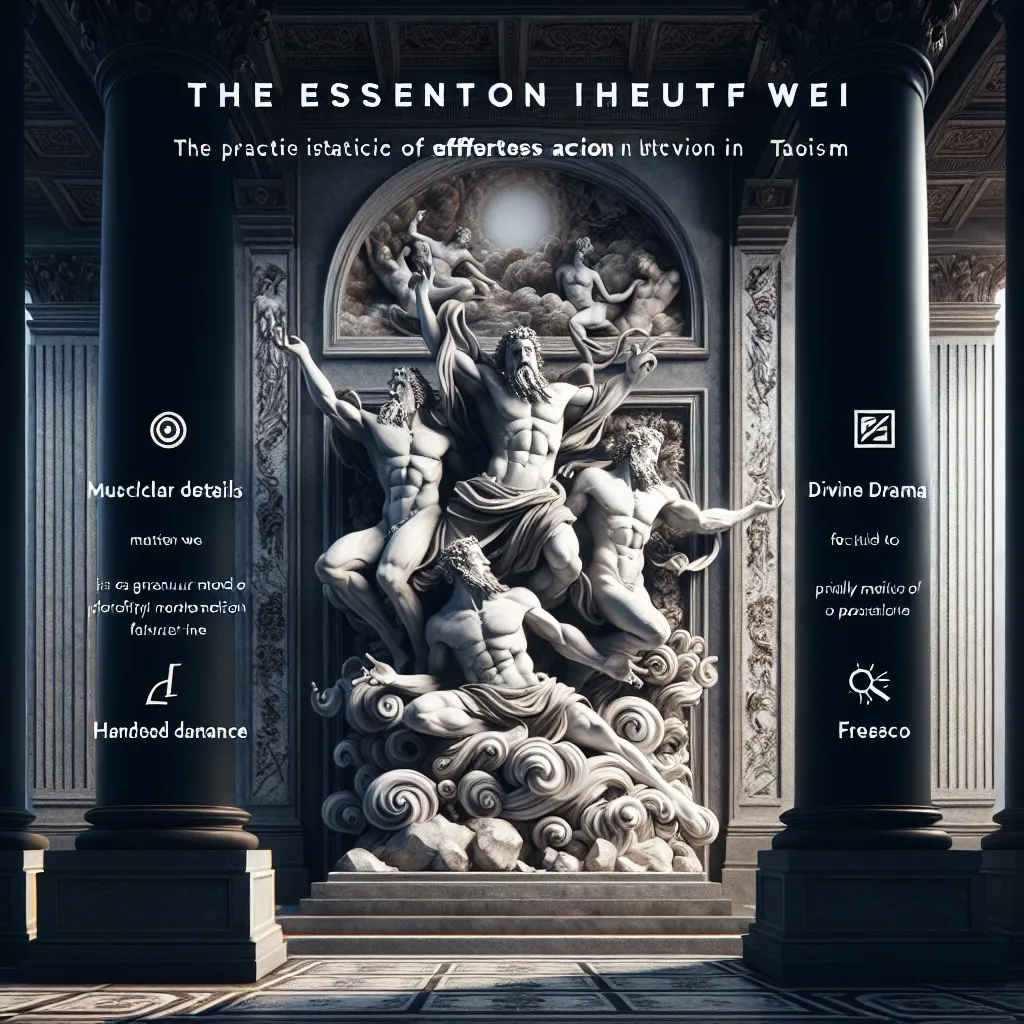
- Published on
- Authors

- Name
- You
Wu Wei: The Practice of Effortless Action in Taoism
Wu Wei (無爲), a Taoist principle meaning "non-action" or "effortless action," is a way of aligning oneself with the natural flow of life. It emphasizes harmony and spontaneity, guiding individuals to act in perfect accordance with the Tao (道), the fundamental nature of the universe. Let's delve into the realms of both scientific understanding and mystical wisdom to see how Wu Wei can be practically applied in daily life.
The Science Behind Effortless Action
The Flow State: A Modern Perspective
In contemporary psychology, the concept of the "flow state," developed by Mihály Csíkszentmihályi, shares striking similarities with Wu Wei. Flow is described as a state of complete immersion and involvement in an activity where one loses the sense of time and self. Here’s a breakdown of its components:
| Component | Description |
|---|---|
| Clear Goals | Clear aims and expectations guide actions without struggle. |
| Feedback | Immediate feedback allows for effortless adjustment. |
| Concentration | Full attention is on the task, minimizing distractions. |
| Balance | Balance between challenge and skill keeps the activity engaging. |
These conditions mirror Wu Wei’s emphasis on natural action without forced effort, suggesting that achieving flow may be a scientific approach to practicing Wu Wei in modern life.
Mystical Wisdom of Wu Wei
Harmony with Nature
Taoism teaches that everything in the universe follows the Tao. By practicing Wu Wei, an individual harmonizes with the fundamental rhythms of nature. This can be a powerful way to reduce stress and promote well-being. Consider the analogy of water:
"Water is fluid, soft, and yielding. But water will wear away rock, which is rigid and cannot yield. As a rule, whatever is fluid, soft, and yielding will overcome whatever is rigid and hard. This is another paradox: what is soft is strong." – Lao Tzu
Applying this wisdom means embracing flexibility and adaptability, allowing one to flow around obstacles rather than force an inappropriate, rigid response.
Practical Applications of Wu Wei
In Daily Life
Mindful Meditation:
- Practice sitting quietly and observing natural thoughts and breath without attempting to control them. This nurtures a habit of non-resistance and acceptance.
Work and Careers:
- Seek roles that align with your natural skills and interests. Strive to work in environments that feel naturally fitting, reducing unnecessary strain.
Interpersonal Relationships:
- Engage in conversations and relationships without trying to dominate or control outcomes. Flow with the natural give-and-take, fostering genuine connections.
| Aspect | Practice |
|---|---|
| Personal Growth | Embrace your strengths and weaknesses, flowing with self-improvement naturally. |
| Health and Wellness | Adopt health practices that feel right and sustainable for your body. |
| Creativity | Allow creative processes to unfold without forcing inspiration. |
Conclusion
Wu Wei invites us into a dance with the universe, encouraging us to move with grace and intuition rather than resistance and force. By blending the ancient wisdom of Taoism with modern scientific insights, we uncover a pathway to a more harmonious and fulfilling life.
Incorporating the principle of Wu Wei into daily practices can transform our approach to challenges, elevate our internal peace, and foster a more profound connection with the world around us. Embrace the flow, and let the art of effortless action guide you towards a life of balance and serenity.
